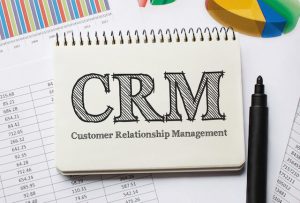
Customer relationship management system works as a heart and soul for any given organization. Due to the availability of multiple variants, choosing and implementing CRM development remains to be one of the most challenging decisions that IT specialist has to make.
Types of CRM Software that are widely used
Though there are systems that offer functionalities of various types of CRM application development in one software, you can also opt for a process-specific solution.
- Customer Service
- Analytical
- Operational
- Marketing Automation
- Sales Automation
- E-commerce
- Customer Service CRM
Customer service CRM plays a crucial role when it comes to managing customer relationship activities. It is essential for creating loyalty and consumer retention. Both of these factors ultimately result in improved profitability.
Most importantly, the software helps the organization to manage consumer data, analyze it to understanding buying behavior, and optimizing interactions.
- Operational
Operational CRM deals with tracking, managing sales as well as business functions. It helps managers and higher management to track inventory, accounting, HR, and support function related performance of the organization. It also helps in generating reports regarding significant aspects of the business and assists managers in making decisions.
- Analytical
Analytical consumer relationship management system helps in analyzing tons of data to derive the market trends. It allows companies to zero-in on products that customers frequently need along with details about the competition that the brand faces at the selected geographic locations.
- Sales Automation
Managing leads, setting reminders for cold calling, emailing, tracking sales pipelines, and other sales tasks are as important as customer service. Sales Automation CRM helps in automating most of the functions and forms a workflow for the associates to follow. It results in better management of sales leads and of course, improved sales percentage.
The mobile apps offered with sales CRMs make life easy for on-field sales executives as they can use order placing, processing, and even invoicing while on the go.
- E-commerce
E-commerce CRMs take care of functions like sales channel integration, inventory management, order processing, shipping, and returns management. The software is essential for firms that are involved in product manufacturing, inventory, selling, and shipping orders to consumers.
- Marketing
As the name suggests, marketing CRM assists in tracking mobile marketing, social media, email, and other types of active campaigns that the organization runs. It can generate reports about the response received for various offers run during campaigns within minutes. Besides helping in tracking performance for each campaign, it also offers leads to sales teams.
Social and Cloud-Based CRM
On-site servers are considered legacy systems and most of the relationship management solutions are cloud-based these days.
Social CRM offers a combination of social media data and customer service CRM. It enables the organization’s executives to interact with consumers using a variety of channels like emails, telephone helpline, Facebook, Twitter, etc. Thus, social consumer relationship management software is slowly replacing the simple customer relationship system everywhere.
Pros and cons of Custom CRM System
Why develop your own Custom CRM Solution when there are cheaper ready-to-use options? The answer to this concern is a complex one.
Small companies often opt for pre-made solutions instead of a customized alternative to save on price, deployment time, and maintenance cost. However, custom made software offers ease of integration, advanced data security, and saves times by eradicating unnecessary processes.
- Custom-made options can be user-friendly
Some off-the-shelf products use a legacy framework and require customer-facing executives to waste their time in punching hundreds of complicated codes as a part of the workflow. Believe it or not, several call centers operating from various countries face high attrition rates due to the legacy CRMs that are being used since ages to save costs.
Switching between multiple unnecessary screens on ready-to-use custom CRM development services is something that leaves customer-facing staff annoyed and frustrated. Customized consumer relationship software eradicates unnecessary screens, procedures and helps in tying up loose ends.
The software’s custom workflow ensures that the system works faster with zero downtime. On the other hand, Widely-used software faces outages and may work slow at times due to some of the other factors.
- Integration
For improving and streamlining business processes, creating a powerful back office machine with system integration remains crucial. Custom software scores better here as your team of developers would design the solution (API) to perfectly integrate with the organization’s accounting, ERP, sales, websites, app, and other software.
- Advanced data security
When it comes to data security, the tried and tested off-the-shelf options remain more vulnerable to cyber attacks. Well-established software often remains on the radar of hackers. On the other hand, advanced security solutions can be implemented in the custom software according to the level of data security required for the business.
- Price factor hits custom software
No doubt, developing your solution for consumer service management can be a little bit more expensive than subscribing to ready-to-use software. However, other factors easily outweigh the single drawback.
Why do you need to build custom software?
Increase in revenue, marketing efforts, changes in the range of products or services offered, and improved sales would change the company’s requirements when it comes to functionalities in the CRM. With a custom CRM, you can add features, expand the system with the help of your developers and enable your employees to work efficiently. You can even downgrade the software and reduce functionalities as and when required.
Integration of CRM into the Business Process
Companies who have an in-house team of developers meet multiple failures before undertaking a successful integration. Lack of integration between the consumer relationship management system as well as other mobile apps development, and errors caused due to redundant input of data cause failure in most cases.
Organizations that take inputs from users and create a document for each process enjoy higher success percentage in integration projects. As mentioned earlier, custom CRMs won’t need efforts and time when it comes to integration as they can be specially programmed to work with the firm’s existing software. They won’t require redundant input of data.
Are you planning to go for custom software to cater to your organizational needs? You should consider discussing your requirements with specialists at Smart Sight Innovations.













